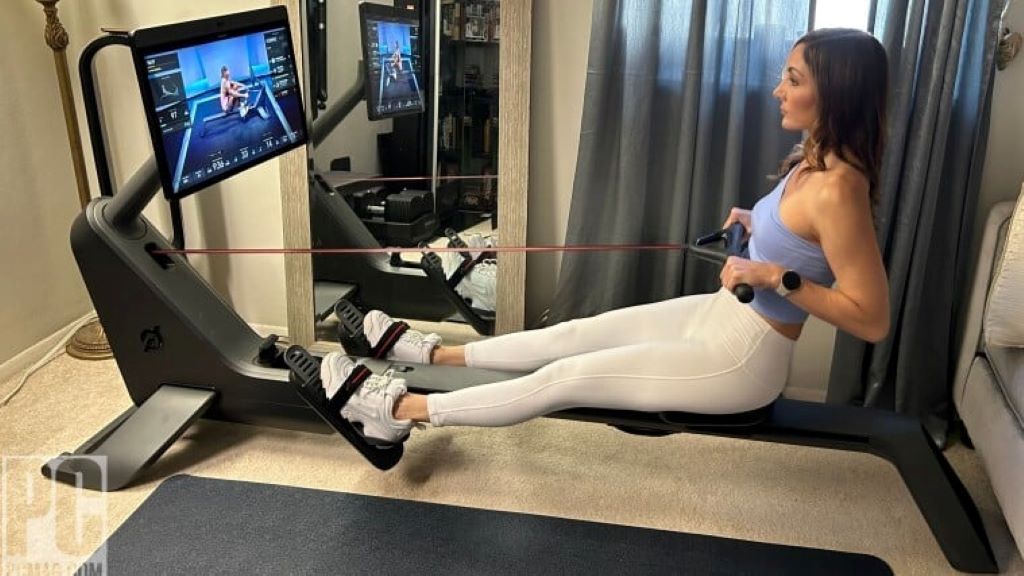
The intersection of technology and wellness has never been more exciting. Smart health tech offers innovative ways to elevate fitness routines. It categorizes solutions into specific domains, each addressing unique aspects of wellness. Let’s dive deep into these categories, their benefits, drawbacks, and real-world applications.
Table of Contents
ToggleWearable Technology: The Heartbeat of Modern Fitness
Wearables are the cornerstone of smart health tech. Devices like Fitbit, Garmin, and Whoop track steps, calories burned, and sleep quality. According to Statista, the wearable market will reach $92 billion by 2027. These gadgets empower users to monitor progress in real time.
However, wearables aren’t perfect. Some struggle with accuracy during intense workouts. Battery life can also be a downside. Despite this, they remain indispensable for fitness enthusiasts. Experts recommend pairing wearables with apps like MyFitnessPal for comprehensive insights.
Biometric Tracking: Data-Driven Decisions
Biometric sensors take fitness tracking to the next level. They measure heart rate variability (HRV), oxygen saturation, and even hydration levels. For instance, the Oura Ring tracks sleep stages and body temperature trends. Studies show that HRV monitoring helps reduce stress and improve athletic performance.
Critics argue that over-reliance on biometrics may lead to obsession. Balance is key. Professional athletes often use these metrics to fine-tune training plans. Beginners should start small, focusing on one or two metrics at a time.
Recovery Tools: Healing Made Smarter
Recovery tech includes massage guns, foam rollers with sensors, and compression boots. Hyperice, Theragun, and Normatec lead this category. Research indicates that active recovery boosts muscle repair and reduces soreness.
While effective, these tools come with hefty price tags. A Theragun costs upwards of $400. Critics suggest simpler methods like stretching might suffice for casual users. Yet, for serious athletes, the investment pays off in faster recovery times.
AI Coaching Apps: Your Personal Trainer in Your Pocket
AI-driven apps like Freeletics, Zwift, and Peloton revolutionize home workouts. These platforms adapt exercises based on user goals and abilities. A study by McKinsey found that personalized fitness programs increase adherence rates by 30%.
On the flip side, lack of human interaction may deter some users. Privacy concerns about data collection also arise. To mitigate risks, choose apps with strong encryption protocols. Experts advise combining app-based workouts with occasional gym sessions for variety.

Mental Wellness Devices: Beyond Physical Fitness
Mental health is equally vital. Devices like Muse headbands and Apollo Neuro bands enhance mindfulness through biofeedback. Muse uses EEG technology to guide meditation practices. Users report reduced anxiety after consistent use.
Skeptics question whether these devices replace traditional therapy. While they complement mental health strategies, they shouldn’t act as standalone solutions. Professionals recommend integrating them into broader wellness routines.
Featured Snippet: What Are the Best Fitness Categories Enhanced by Smart Health Tech?
Smart health tech transforms fitness by focusing on key categories like wearables, biometric tracking, recovery tools, and AI-driven coaching apps. Wearables like Fitbit and Apple Watch dominate the market, with over 500 million users globally as of 2023. Biometric trackers measure heart rate, sleep patterns, and stress levels, offering actionable insights. Recovery devices, such as massage guns and foam rollers with sensors, optimize muscle repair. AI coaching apps personalize workouts, ensuring efficiency and safety. These categories leverage cutting-edge technology to enhance wellness outcomes.
Pros and Cons of Smart Health Tech
|
Pros |
Cons |
| Real-time feedback improves accountability | High costs deter budget-conscious buyers |
| Customizable features cater to individual needs | Over-reliance on tech may reduce intuition |
| Encourages consistency through gamification | Data privacy remains a concern |
| Enhances recovery and injury prevention | Not all devices suit beginners |
Reviews: What Users Say About Device-Enhanced Wellness
User reviews highlight both satisfaction and frustration. Many praise the convenience of smartwatches syncing with smartphones. Others complain about inaccurate step counts. Platforms like Trustpilot showcase glowing testimonials for brands like Fitbit and critical comments for lesser-known companies.
One standout review comes from Sarah T., an avid runner: “My Garmin watch transformed my marathon prep. I wouldn’t trade it for anything.” Conversely, John D. notes, “I returned my fitness tracker because it drained my phone battery constantly.”
Read More: How to Start Exercising Again: A Guide to Reclaiming Your Fitness
FAQs About Smart Health Tech
-
What is smart health tech?
It refers to devices and apps designed to enhance physical and mental well-being through advanced technology.
-
Which fitness category suits beginners best?
Wearable tech like Fitbit or simple AI coaching apps works well for newcomers.
-
Are smart health devices accurate?
Most devices provide reliable data, but accuracy varies depending on usage conditions.
-
How do I protect my data when using these devices?
Choose reputable brands with robust security measures and avoid sharing sensitive info unnecessarily.
-
Can smart health tech replace personal trainers?
No, but it complements professional guidance effectively.
-
Do recovery tools really work?
Yes, especially for athletes. However, simpler alternatives exist for casual users.
-
Is smart health tech worth the investment?
For dedicated fitness enthusiasts, absolutely. Casual users may find cheaper options sufficient.
Final Thoughts
Smart health tech reshapes how we approach fitness and wellness. By understanding the categories—wearables, biometrics, recovery tools, AI coaching, and mental wellness—you can make informed choices. Each category brings unique advantages and challenges. Whether you’re aiming for peak performance or simply better health, these innovations pave the way forward.
Stay curious, stay active, and embrace the power of smart health tech today.
Read More: Excuses for not going to the gym

